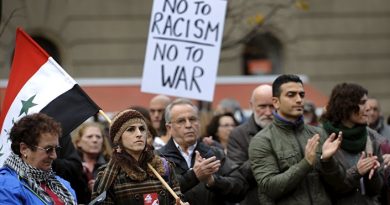FOCUS on Georgia Opposition Parties Doubt Validity of Election Results
Georgia Opposition Parties Doubt Validity of Election Results
Sophie Ulm
Staff Writer
On Sunday, October 26, parliamentary elections in Georgia resulted in the ruling Georgian Dream party receiving 54 percent of the country’s vote, with the two main opposition parties, the Coalition for Change and the United National Movement, bringing in 11 percent and 10 percent of the vote, respectively, reports CNN. Both of these opposition parties have expressed doubts about the validity of the election results, and have stated that they do not accept them, but external observers have stopped short of calling the election fraudulent.
This election was seen as an important moment in Georgia’s future, particularly in its attempts to join the European Union (EU). Georgia is currently a candidate to join the EU, according to the BBC, but many EU leaders have expressed concern over the way in which the elections were carried out. Following the allegations of election irregularities, EU leaders said that they stood with the Georgians, and European Commission President Ursula von der Leyen emphasized that Georgians had the “right to see that electoral irregularities were investigated swiftly, transparently and independently.”
Georgian opposition leaders have called on the Georgian public to organize protests in the capital, Tbilisi, reports the BBC. Protestors stated that they wanted a legal challenge to the elections and to find justice. It is unclear what channels legal challenges would go through, though according to Politico, Kornely Kakachia, the head of the Georgian Institute of Politics, has said that the opposition would have to present strong evidence of any wrongdoing in order for the process to continue.
Prior to the election, a joint task force of observers was sent to Georgia to observe the elections. According to Politico, the task force contained 500 members from various groups, including the Organization for Security and Cooperation in Europe, the European Parliament, the Parliamentary Assembly of the Council of Europe and the North Atlantic Treaty Organization Parliamentary Assembly, and workers were deployed across the country.
European observers reported that the elections took place in a tense environment, with instances of violence and intimidation present according to NPR. Other concerns included vote buying, party-organized intimidation and a lack of impartiality from state institutions. Antonio Lopez-Isturiz White, head of the European Parliament monitoring delegation, also stated that the Georgian Dream party used “anti-Western and hostile rhetoric … [to] promoted Russian misinformation, manipulations, and conspiracy theories,” emphasizing the growing concern of Russia’s role in Georgia.
Georgia’s current president, Salome Zourabichvili, stated that Georgia was a victim of a “Russian special operation,” reports Al Jazeera. The current Prime Minister of Georgia, Irakli Kobakhidze, a member of the Georgian Dream party, accused opposition leaders of “undermining the country’s constitutional order” in their continued resistance to accept the election outcomes. The Georgian Dream Party has been in power since 2012 and has experienced great change in its policies and positions over the last decade.
Georgia, which for many years was viewed as one of the most pro-Western of the former Soviet States, has begun to backslide on this position in recent years under the Georgian Dream Party. Earlier this year, Georgia passed a foreign influence law that many view as a way to monitor and limit freedom of speech, according to The Associated Press.
Reuters also reported on a recent law limiting LGBTQ+ rights, reporting that the laws drew concerns from Georgia’s Western allies but was commended by Russian leaders. The Associated Press has also reported that the Georgian Dream Party’s leader and founder, Bidzina Ivanishvili, has also claimed that Georgian opposition parties would be banned if the Georgian Dream Party won, and that opposition leaders would be punished for unspecified “war crimes” against the Georgian people.
Image courtesy of Getty Images

